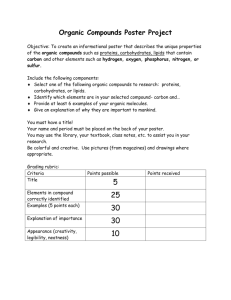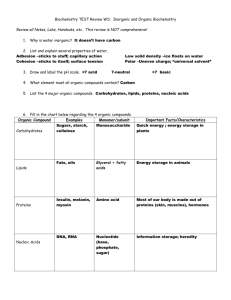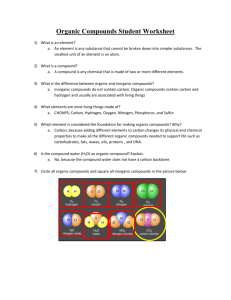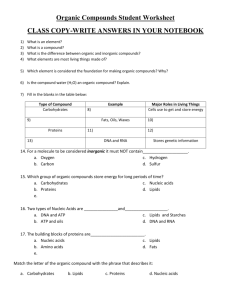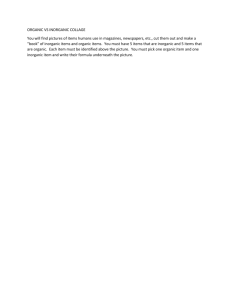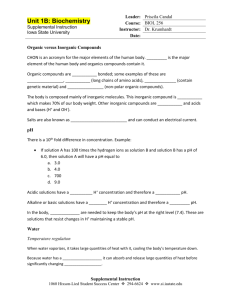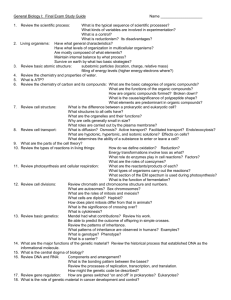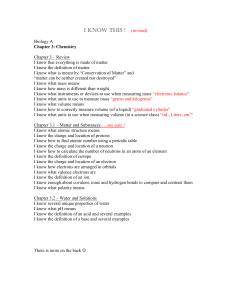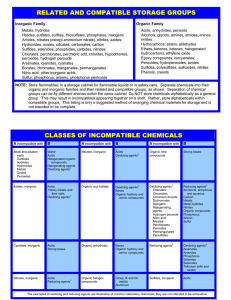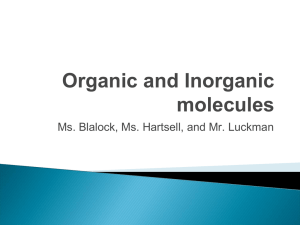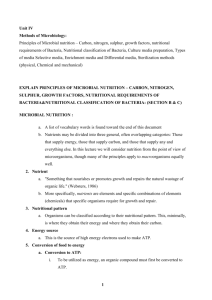Organic Compounds
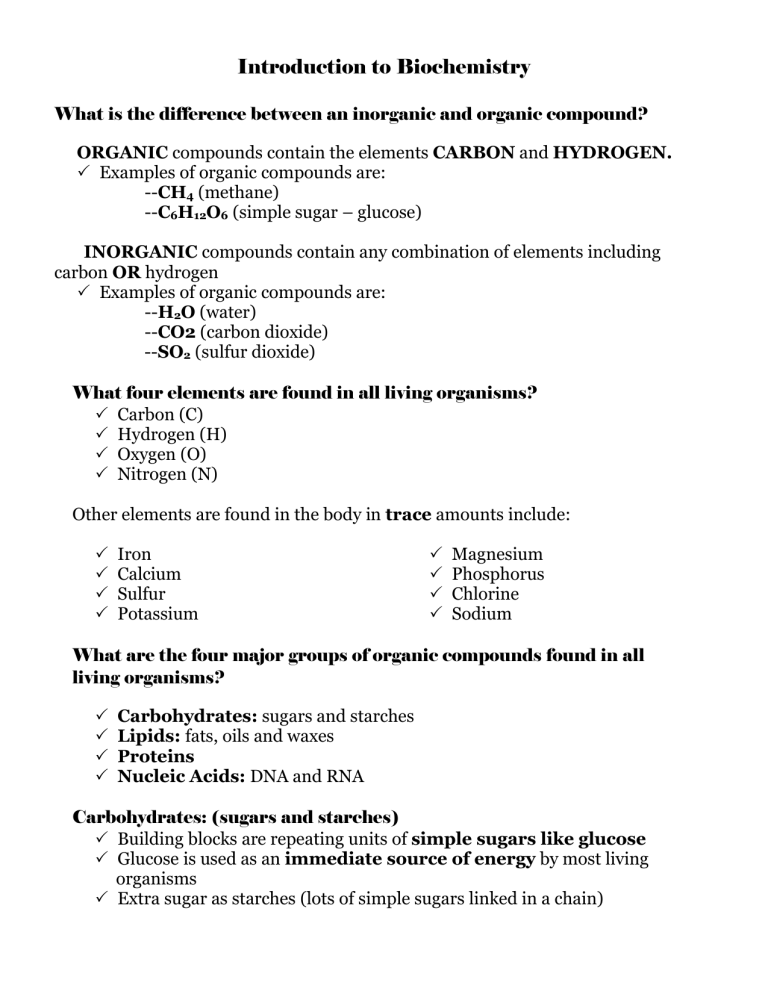
Introduction to Biochemistry
What is the difference between an inorganic and organic compound?
ORGANIC compounds contain the elements CARBON and HYDROGEN.
Examples of organic compounds are:
--CH
4
(methane)
--C
6
H
12
O
6
(simple sugar – glucose)
INORGANIC compounds contain any combination of elements including carbon OR hydrogen
Examples of organic compounds are:
--H
2
O (water)
--CO2 (carbon dioxide)
--SO
2
(sulfur dioxide)
What four elements are found in all living organisms?
Carbon (C)
Hydrogen (H)
Oxygen (O)
Nitrogen (N)
Other elements are found in the body in trace amounts include:
Iron
Calcium
Sulfur
Potassium
Magnesium
Phosphorus
Chlorine
Sodium
What are the four major groups of organic compounds found in all living organisms?
Carbohydrates: sugars and starches
Lipids: fats, oils and waxes
Proteins
Nucleic Acids: DNA and RNA
Carbohydrates: (sugars and starches)
Building blocks are repeating units of simple sugars like glucose
Glucose is used as an immediate source of energy by most living
organisms
Extra sugar as starches (lots of simple sugars linked in a chain)
Lipids: fats, waxes, and oils
Building blocks are fatty acids and glycerol
Used as a reserve energy source by most living organisms
Lipids also make up parts of the cell including the cell membrane
Proteins:
Building blocks are repeating units of amino acids
There are four major functions of proteins in living things:
--hormones are chemical messengers that help to regulate life processes
--structural body parts such as hair, nails, part of cell membranes
--pigments such as hemoglobin and chlorophyll
--enzymes which control the rate of chemical reactions (also known as
organic catalysts)
Nucleic Acids:
Building blocks are repeating units of nucleotides
Include DNA and RNA
Store the hereditary (genetic information) within the chromosomes
found in the nuclei of cells.
Please answer the following questions:
1. Inorganic or Organic: Examine the compounds listed below. Write a capital letter O if you think the compound is organic or a capital I if you think it is inorganic.
_____NH
3
_____C
6
H
6
_____H
2
SO
4
_____CO
2
_____C
12
H
22
O
11
_____HCl
2. What are the four most common elements found in living things?
3. For the following trace elements, please write the chemical symbol
next to each element (you may need your textbook or reference for this).
_____Iron
_____Calcium
_____Sulfur
_____Potassium
_____Magnesium
_____Phosphorus
_____Chlorine
_____Sodium
Lipids
Proteins
4. Please fill in the chart below.
Organic
Compound
Carbohydrates
Building
Blocks
Nucleic Acids
Functions in Living Organisms
